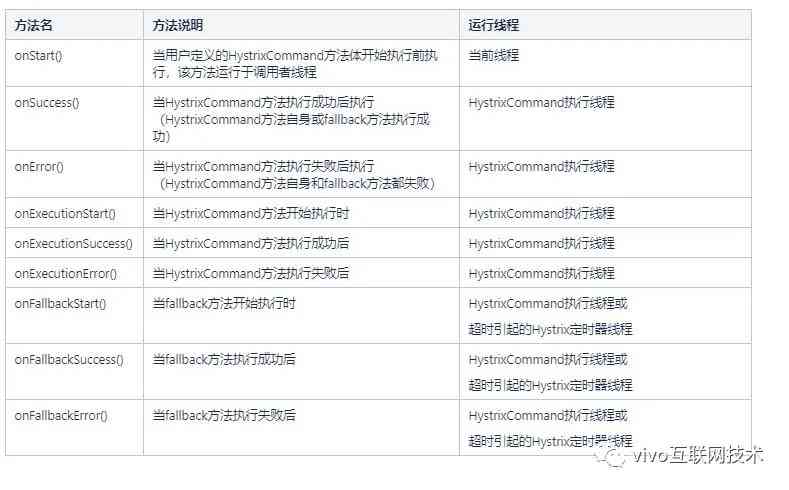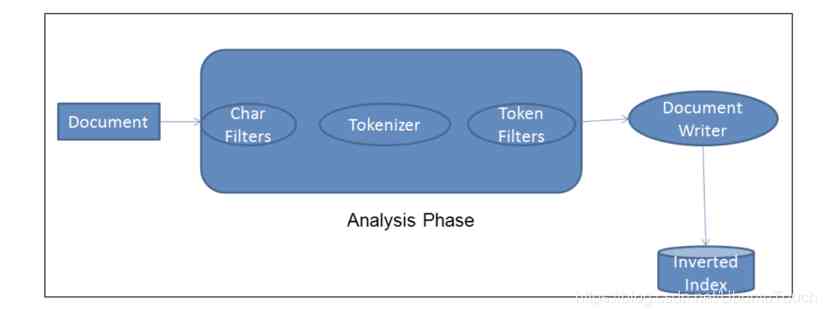This article shares ThreadLocal encounter Hystrix The scheme of time context information transmission .
One 、 background
The author involved in the use of ThreadLocal To store some key information in the context link , Some of these business implementations depend on external interfaces , For these dependent interfaces Hystrix For fuse protection , But in the use of Hystrix It is found in the method of fuse protection to obtain ThreadLocal Information is inconsistent with expectations , This paper aims to explore how to solve this problem .
Two 、ThreadLocal
stay Java In programming languages ThreadLocal Is used to facilitate developers in the same thread context of different classes 、 Sharing information in different ways ,ThreadLocal Variables are not affected by other threads , Different threads are isolated from each other , That is, thread safe . In the actual service link, sometimes some common information needs to be shared from the entrance to the specific service implementation , For example, the unique ID of the user 、 Link tracking unique identification, etc , This information can be used ThreadLocal To store and implement , Here's a simple sharing on the same link traceId Example code for .
public class ThreadLocalUtil {
private static final ThreadLocal<String> TRACE_ID = new ThreadLocal<>();
public static void setTraceId(String traceId) {
TRACE_ID.set(traceId);
}
public static String getTraceId() {
return TRACE_ID.get();
}
public static void clearTraceId() {
TRACE_ID.remove();
}
}3、 ... and 、Hystrix
In a distributed environment , The external services that each system depends on will inevitably fail or time out ,Hystrix By adding delay fault tolerance and failure tolerance logic to dependent services , It's called 「 Fuse 」, To help developers flexibly control the distributed services they depend on .
Hystrix Access points between services are isolated , Cascading failures between denial of service , And offers the option of downgrading , All this is to provide the overall robustness of the system , In large-scale distributed services , The robustness of the system is particularly important .Hystrix A detailed introduction can be found in :Hystrix Introduce
Four 、ThreadLocal run into sb. Hystrix
When the specific implementation in the service link depends on external services , And make relevant fuse protection , So the two protagonists of this article meet in this way .
according to Hystrix We know about the related documents of ,Hystrix Provides two thread isolation modes : Semaphores and thread pools .
In semaphore mode, business logic is executed in the same thread context , The thread pool mode uses Hystrix The thread pool is provided to execute the relevant business logic . In the daily business development, more need to fuse is related to the external network IO Called ( Such as RPC call ),Hystrix One of the purposes of existence is to reduce the consumption of service container threads by external dependent calls , Semaphore mode is obviously not suitable for , So we use thread pool mode in most scenarios , and Hystrix Thread pool mode is also enabled by default .
What this article wants to solve is the problem that only exists in this default mode :
1、InheritableThreadLocal
Someone might think if it can be used InheritableThreadLocal To solve the ?
InheritableThreadLocal You can share the thread variable information in the current thread to the one created by the current thread 「 Sub thread 」 in , But there's a very important message missing here ,Hystrix In the thread mode, the bottom layer uses a thread pool maintained by itself , In other words, the threads will be reused , Then it will appear that the information shared by each thread is obtained for the first time before 「 Parent thread 」 Share information for , It's obviously not what we expect , therefore InheritableThreadLocal Excluded .
So you want to be in Hystrix How to solve this problem ?
first-class Hystrix We have provided relevant solutions for you , And it's plug-in , On demand customization .Hystrix For a detailed description of the plug-in, please see this :Hystrix The plugin is introduced , This paper introduces two kinds of schemes to you .
How to make ThreadLocal Variable information in HystrixCommand Can be executed in Hystrix Correct delivery in threads ?
2、Concurrency Strategy
Use HystrixConcurrencyStrategy Plug ins can be packaged Hystrix The method executed by the thread , Specific direct look at the example code :
public class MyHystrixConcurrencyStrategy extends HystrixConcurrencyStrategy {
@Override
public <T> Callable<T> wrapCallable(Callable<T> callable) {
String traceId = ThreadLocalUtil.getTraceId();
return () -> {
ThreadLocalUtil.setTraceId(traceId);
try {
return callable.call();
} finally {
ThreadLocalUtil.clearTraceId();
}
};
}
}
// Register the current policy plug-in somewhere in the business code
HystrixPlugins.getInstance().registerConcurrencyStrategy(new MyHystrixConcurrencyStrategy());It's very easy to use this way , As long as the developer will focus on ThreadLocal Value for 「 Copy 」 that will do , That's just the way it is ?
We notice that this approach is essentially aimed at HystrixCommand Of run() Method ( That is to say, we added @HystrixCommand Annotation business approach ) Intercept processing , But it may time out or fail , Then it will be executed fallback Method , If in fallback Methods also want to share relevant context information , This is not the time to cover this scene .
If in your business fallback You don't need to pay attention to the context information , Then the above solution can meet the demand , It's also very simple. . But if fallback Context information is also required in the method , Then you can use Hystrix The following plug-in methods are provided .
3、Command Execution Hook
Use HystrixCommandExecutionHook Can realize the right Hystrix Complete control of the execution process , You can override some of its key node callback methods , To meet your customization needs . For more information, you can see this :Command Execution Hook Introduce , Here is a list of HystrixCommandExecutionHook Some of the key methods commonly used :

After understanding these key methods , You can see that the implementation is also very simple , As long as onStart() When 「 Copy 」 Under the context of attention , And then in onExecutionStart() and onFallbackStart() Before the execution of the two methods 「 Paste 」 Under the context of attention , Finally, we are doing the corresponding cleaning up , You can meet your needs , The sample code is as follows :
public class MyHystrixHook extends HystrixCommandExecutionHook {
private String traceId;
@Override
public <T> void onStart(HystrixInvokable<T> commandInstance) {
copyTraceId();
}
@Override
public <T> void onExecutionStart(HystrixInvokable<T> commandInstance) {
pasteTraceId();
}
@Override
public <T> void onFallbackStart(HystrixInvokable<T> commandInstance) {
pasteTraceId();
}
// below option1 and option2 Choose one of the overrides
//------------------------------------option1------------------------------------
@Override
public <T> void onExecutionSuccess(HystrixInvokable<T> commandInstance) {
ThreadLocalUtil.clearTraceId();
super.onExecutionSuccess(commandInstance);
}
@Override
public <T> Exception onExecutionError(HystrixInvokable<T> commandInstance, Exception e) {
ThreadLocalUtil.clearTraceId();
return super.onExecutionError(commandInstance, e);
}
@Override
public <T> void onFallbackSuccess(HystrixInvokable<T> commandInstance) {
ThreadLocalUtil.clearTraceId();
super.onFallbackSuccess(commandInstance);
}
@Override
public <T> Exception onFallbackError(HystrixInvokable<T> commandInstance, Exception e) {
ThreadLocalUtil.clearTraceId();
return super.onFallbackError(commandInstance, e);
}
//------------------------------------option1------------------------------------
//------------------------------------option2------------------------------------
@Override
public <T> void onSuccess(HystrixInvokable<T> commandInstance) {
ThreadLocalUtil.clearTraceId();
super.onSuccess(commandInstance);
}
@Override
public <T> Exception onError(HystrixInvokable<T> commandInstance, HystrixRuntimeException.FailureType failureType, Exception e) {
ThreadLocalUtil.clearTraceId();
return super.onError(commandInstance, failureType, e);
}
//------------------------------------option2------------------------------------
private void copyTraceId() {
this.traceId = ThreadLocalUtil.getTraceId();
}
private void pasteTraceId() {
ThreadLocalUtil.setTraceId(traceId);
}
}
// Register somewhere in the business code Hook plug-in unit
HystrixPlugins.getInstance().registerCommandExecutionHook(new MyHystrixHook());Is this the way to solve the problem ? Think about it carefully if there is any problem ?
We know HystrixCommandExecutionHook After the plug-in is registered , all HystrixCommand When it is called and executed, it will go through these overriding methods , There will also be multithreaded rewriting traceId, So for this Hook Under the traceId It could be changed at any time . Suppose there's a scenario like this :

- Caller thread 1 Contextual traceId by "t1", In the call to its dependent Hystrix When the method is used ,traceId Is set to "t1"
- At the same time, the caller thread 2 Contextual traceId by "t2", In the call to its dependent Hystrix When the method is used , It also triggers changes traceId by "t2"
- stay hystrix Threads 1 When you start to execute specific business methods , He wanted to 「 Paste 」 Of traceId It has been changed to "t2", Instead of the initial caller thread 1 Set when "t1"
To solve the problems that we have encountered above ,Hystrix Provides developers with access to HystrixRequestContext and HystrixRequestVariableDefault These two key classes solve .
HystrixRequestContext Used to record every time Hystrix The context of the request , There are two key messages :static ThreadLocal<HystrixRequestContext> requestVariables: Used to record every time HystrixCommand Execution context .
ConcurrentHashMap<HystrixRequestVariableDefault<?>, HystrixRequestVariableDefault.LazyInitializer<?>> state: Used to record the real data of the context .
HystrixRequestVariableDefault It's a bit like ThreadLocal, Provides get(),set() Method , The realization of specific ability depends on HystrixRequestContext.
HystrixCommandExecutionHook The example code of the implementation of the ultimate solution of the plug-in is as follows :
public class MyHystrixHook extends HystrixCommandExecutionHook {
private HystrixRequestVariableDefault<String> requestVariable = new HystrixRequestVariableDefault<>();
public <T> void onStart(HystrixInvokable<T> commandInstance) {
HystrixRequestContext.initializeContext();
copyTraceId();
}
@Override
public <T> void onExecutionStart(HystrixInvokable<T> commandInstance) {
pasteTraceId();
}
@Override
public <T> void onFallbackStart(HystrixInvokable<T> commandInstance) {
pasteTraceId();
}
@Override
public <T> void onSuccess(HystrixInvokable<T> commandInstance) {
HystrixRequestContext.getContextForCurrentThread().shutdown();
super.onSuccess(commandInstance);
}
@Override
public <T> Exception onError(HystrixInvokable<T> commandInstance, HystrixRuntimeException.FailureType failureType, Exception e) {
HystrixRequestContext.getContextForCurrentThread().shutdown();
return super.onError(commandInstance, failureType, e);
}
private void copyTraceId() {
requestVariable.set(ThreadLocalUtil.getTraceId());
}
private void pasteTraceId() {
ThreadLocalUtil.setTraceId(requestVariable.get());
}
}In every time Hook perform onStart() Method time , It has to be executed first HystrixRequestContext Initialization of , Then, we will focus on the context information 「 Copy 」, The key codes are as follows :
public void set(T value) {
HystrixRequestContext.getContextForCurrentThread().state.put(this, new LazyInitializer<T>(this, value));
}Copy the information of interest to a thread related ConcurrentHashMap It's in , According to the front face HystrixCommandExecutionHook We know ,onStart() At the time, the current thread is the caller thread ;
In the real beginning HystrixCommand Business side approach , It needs to be done at this time 「 Paste 」 Context information , from requestVariable.get() obtain ,get The key operation code is as follows :
public T get() {
if (HystrixRequestContext.getContextForCurrentThread() == null) {
throw new IllegalStateException(HystrixRequestContext.class.getSimpleName() + ".initializeContext() must be called at the beginning of each request before RequestVariable functionality can be used.");
}
ConcurrentHashMap<HystrixRequestVariableDefault<?>, LazyInitializer<?>> variableMap = HystrixRequestContext.getContextForCurrentThread().state;
// short-circuit the synchronized path below if we already have the value in the ConcurrentHashMap
LazyInitializer<?> v = variableMap.get(this);
if (v != null) {
return (T) v.get();
}
// Omit a part of
....
}As you can see from the code get And set The operation corresponds to , It's also thread related ConcurrentHashMap Get the corresponding value , We also know that the current thread is Hystrix Provided thread pool threads , Not the same thread as the caller thread , Then the context information of business concern can be correctly transmitted to Hystrix In the thread ? After testing, it does 「 magical 」 The right transmission of , How did you do it ?
Turned out to be Hystrix「 silently 」 Did it for us , Through debugging, we can see the following key code :
this.actual = action;
// Caller thread HystrixRequestContext Information
this.parentThreadState = HystrixRequestContext.getContextForCurrentThread();
this.c = concurrencyStrategy.wrapCallable(new Callable<Void>() {
@Override
public Void call() throws Exception {
HystrixRequestContext existingState = HystrixRequestContext.getContextForCurrentThread();
try {
// We did a copy operation for us
HystrixRequestContext.setContextOnCurrentThread(parentThreadState);
// Start really implementing the business defined approach , At this point, the context information is consistent
actual.call();
return null;
} finally {
HystrixRequestContext.setContextOnCurrentThread(existingState);
}
}
});
}In the execution of business defined HystrixCommand Before the method ,Hystrix The encapsulated object helps us to transfer the context information of the caller thread 「 Copy 」 Over here. , In fact, this processing idea is a bit similar to our previous plug-in HystrixConcurrencyStrategy.
5、 ... and 、 summary
HystrixConcurrencyStrategy and HystrixCommandExecutionHook Both plug-in mode, you can judge according to the actual situation , If you're sure you don't need to be in fallback Pay attention to the context and pass the information , Then use the former , It's also very simple , But if you want to solve it more thoroughly , So the latter way is OK .
author :vivo Official website mall development team

![[paper reading notes] a multilayered informational random walk for attributed social network embedding](/img/3d/657a60600219ce6cfc514ad1b1bb49.jpg)




![[paper reading notes] large scale heterogeneous feature embedding](/img/00/df94bfe594e17ab120c30fd6b31931.jpg)